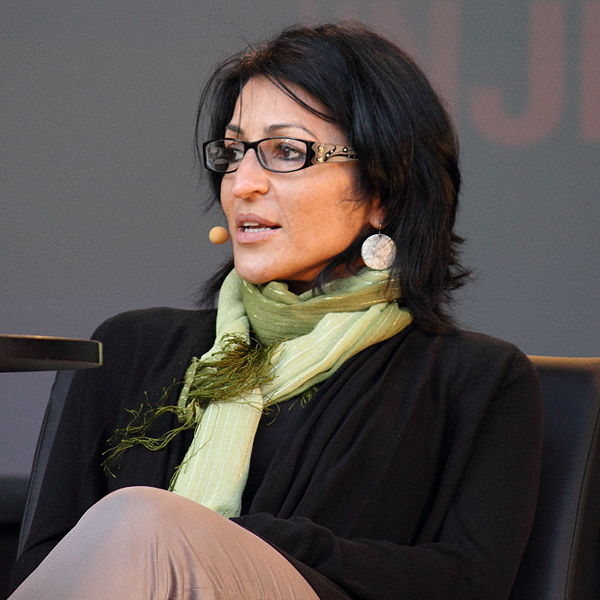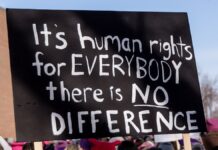Writers have expressed solidarity with prominent Palestinian-American writer Susan Abulhawa who was detained and then deported by Israel. Israel blocked the writer from attending the Kalimat Palestinian Literature Festival held in her homeland of occupied East Jerusalem.
Abulhawa is a renowned literary voice and has penned the books The Blue Between Sky and Water and Mornings In Jenin which tell of life under occupied Palestine. She was expected to attend the Festival, sponsored in part by the British Council, which took place from 3-7 November.
However, when she arrived at Ben Gurion airport on November 1, she was held for questioning and eventually – after about 36 hours – deported to back to the United States where she currently lives. This was despite that she had help from a lawyer from the British Council.

“Israeli authorities have denied me entry into my country and I am therefore unable to attend the festival. It pains me greatly not to be with my friends and fellow writers to explore and celebrate our literary traditions with readers and with each other in our homeland. It pains me that we can meet anywhere in the world except in Palestine, the place to which we belong, from whence our stories emerge and where all our turns eventually lead,†Abulhawa said in a personal statement on her Facebook page.
This is the second time in three years that the writer has been barred from her country. In 2015, she traveled to Palestine to build playgrounds in several villages and to hold opening ceremonies at playgrounds she had helped build in the months previous. Abulhawa was detained, supposedly because she refused to give them the reason for her visit. This time Israeli authorities deported her on the grounds that she did not have a visa.
The authorities said because she had been deported from Israel three years ago, Abulhawa should have obtained a visa before attempting to enter the country again. She was not aware of such a rule.
The Coalition For Women In Journalism (CFWIJ) strongly condemned Israel’s detainment and deportation of Abulhawa.
“Detentions are one of the modern methods used by countries to silence free speech,” said CFWIJ founding director Kiran Nazish in a statement. “It is not only to limit travel and access to the country itself, but also to set a precedence of hurdles, discouraging the larger community. It works effectively, and we have seen a stark increase worldwide. It should be treated as a core method of intimidation by the international community that strives for a transparent world, and condemned with the seriousness that these methods require to be discouraged.”
“We recognise that Palestinian writers play a key role in representing the under told stories of each square meter of that land, where we know that news is controlled and silenced on a daily basis. In that sense, Palestinian writers fill a void left by a censored press. We recognise that obstructing public access to important voices like Susan’s is most definitely to heighten the bar of censorship,” she added.
South African writer Zukiswa Wanner said Israel refusing Abulhawa entry to her Palestinian homeland is “saddening but not surprising”. Wanner knows Abulhawa from when the writer attended the Time of the Writer International Writers Festival in Durban in 2013.
Wanner said totalitarian governments like our own former apartheid state and the Israeli occupiers have consistently shown us that they are incapable of feeling for anyone they other.
“Their refusal of entry to Susan to her homeland for a literary festival is in no way different to the way our own government gave exit passes, exiled those of our own artists who were against their oppressive regime and refused them entry be it Miriam Makeba or Keorapetse Kgositsile,” she said in an interview with The Daily Vox.
Abulhawa’s work continues to inspire many in the Occupied Territories and Israel’s bans convert others who think Israel’s government deserves a seat at the United Nations, she said.
“For Israel, the time is running out and one day Palestinians will be free,” Wanner said.
“In the meantime for those of us who believe in the rights of every person to live in dignity and respect in the place they call home, we amplify our voices and join Susan in saying ‘Zionism is apartheid and we say no to it’. We continue to support the Palestinian writers in particular and thank them for speaking up against oppression and silencing as we see happened to Susan and likely worse to those in the Occupied Territories,” she said.
“It is to their own detriment that they cannot accept our presence in our homeland, because our humanity remains intact and our art is beautiful and life-affirming, and we aren’t going anywhere but home,” Abulhawa said in her statement.









